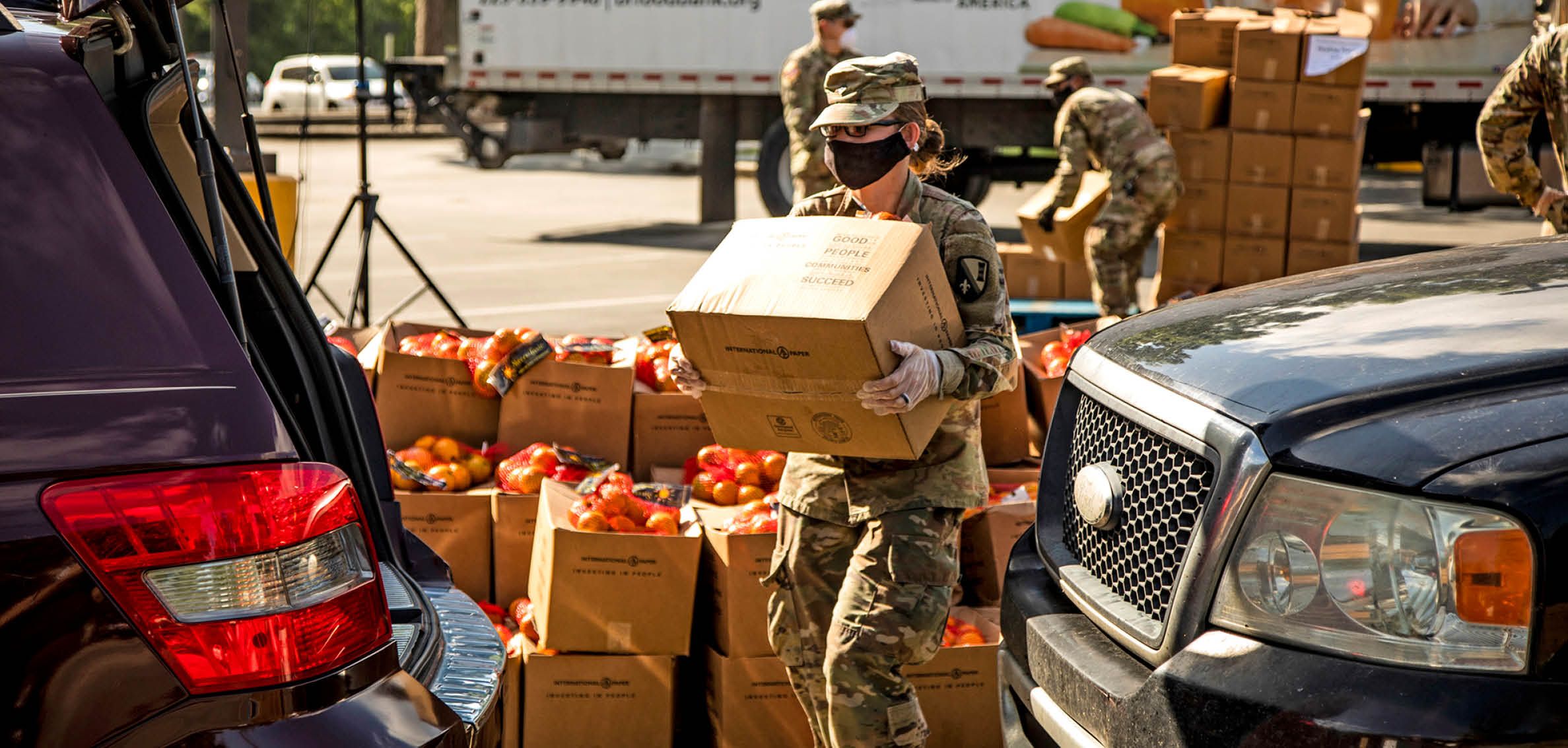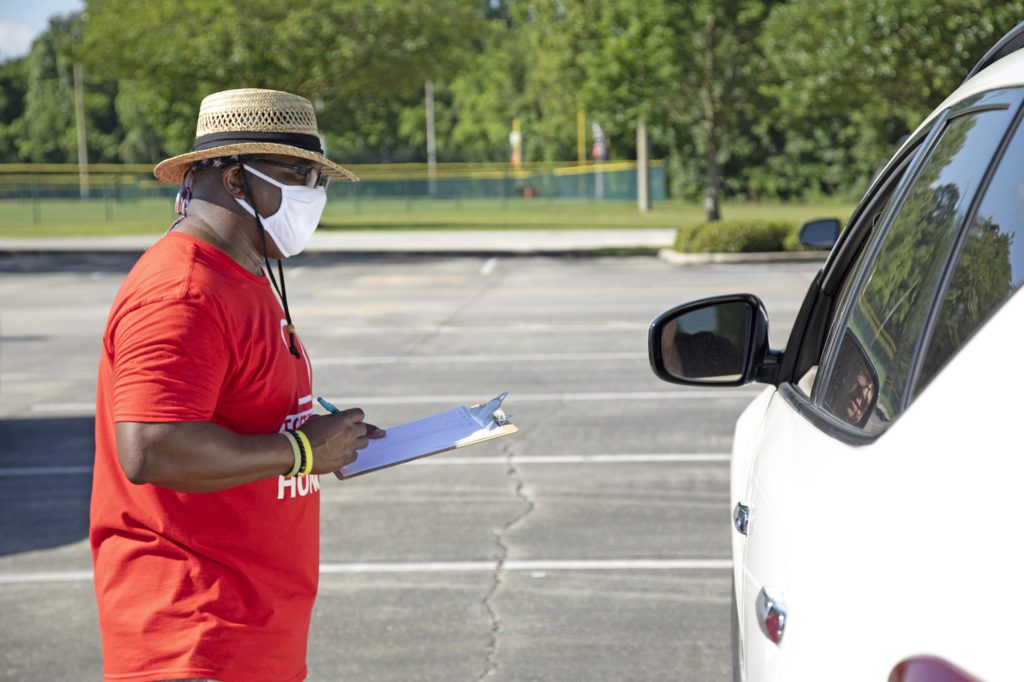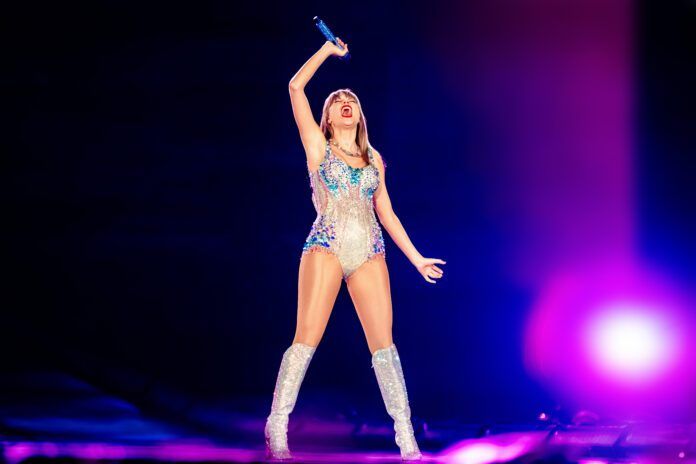
Giving back: Greater Baton Rouge Food Bank
Humans are uniquely efficient creatures: No other animal matches us for longevity on the track, nor could one compare in genius of invention. We have built rocket ships, conjured medicines and painted masterpieces. We can plant crops, build shelter and forge relationships that help us live productive lives. The caveat? Humans are also energetic creatures, and without three meals a day feeding those muscles and powering those brains, the risk of hunger threatens even our most basic faculties, working harder than any predator at stopping progress where it stands.
Even in 2021, that primal fear still hangs over more people than you might think.
In 1984, the Greater Baton Rouge Food Bank sprung up as part of the Urban Ministries Coalition, tending to thousands of food-insecure residents by receiving donations of nonperishable food and distributing them through what has now grown to more than 100 agencies in an 11-parish zone. As one of the most visible charities around—when you see a red oil drum full of canned goods in a Baton Rouge grocery store, you know exactly where it comes from—the Food Bank’s business model succeeded in its simplicity, the first resource organizations and individuals relied on to stock pantries and kitchens around the city.
Then came the complications of COVID-19. Fundraising events like Empty Bowls, which raises money for the Food Bank by selling meals in handmade ceramics, and the yearly Slice of Life Golf Classic were postponed in 2020, with dozens of agencies and nonprofits forced to halt their usual activities, all while unemployment skyrocketed.
“Canceling our events was the easy part,” says Mike Manning, president and CEO of the Food Bank. “Changing our operating model was harder. In the early days, the agencies we distributed through were all closed, so we had to fill those absent spaces ourselves.”
In those crazy months of 2020, Manning, who has been with the Food Bank for 17 years, helped increase distributions by 21%, with staff members often working weekends to make sure food reached its destinations as they balanced increased sanitation measures, social distancing and rising community need.
“We were fortunate to have the National Guard come out to help us so we could do the massive drive-through distributions early on at places like Southern University or Healing Place Church,” he says. “That’s how we were able to provide handouts for such a significant amount of cars in just two or three hours a day.”

The Food Bank has also maintained its slew of special projects, including its BackPack Program, which provides weekend food to schoolchildren, a Senior Grocery Program, which provides a box of food each month to qualifying seniors, a Mobile Pantry Program, which has especially amped up during COVID-19, and Farm Fresh, which, as the name suggests, provides fresh food—not just canned goods—to distribution agencies that don’t have access to freezers or refrigeration.
A packaging operation—“similar to the one Zapp’s uses to pack potato chips,” says Manning—allows the Food Bank to palletize boxes of dried beans, rice, pasta, cereal and other dried goods so that they can be distributed in greater quantities with less bulk.
But its continued success during COVID-19 owes much to individuals from the Baton Rouge community, with institutions like BREC’s Baton Rouge Zoo gathering 7,320 pounds of nonperishable food—or 6,100 meals—during its 2020 ZooLights event, and with generous matched monetary donations like the one given by Donna and Hans Sternberg to provide more than 600,000 meals to Baton Rouge families throughout 2021. When just $1 pays for the equivalent of three meals a day, even the smallest donation carries potential for significant impact.
“People are going hungry all over the country,” says Hans Sternberg. “Six hundred thousand meals in a city as small as Baton Rouge? That makes a huge difference.”
For Manning, the impact of COVID-19 runs in the same vein as any natural disaster, remembering the Food Bank’s role during the floods that devastated many areas of Baton Rouge in 2016. “This time around, people are losing their jobs and homes for a different reason,” he says. “These are gig workers, casino workers, restaurant workers—people who can’t just telecommute from home—who never expected COVID-19 to happen. Not only that, but most of our volunteers are senior citizens, and their involvement has necessarily had to slow down due to their higher risk for contracting the virus.”
With more vaccines received every day, and with the slow recuperation of the world underway, Manning looks forward to a future of renewed collaboration. “We’re just the conduit so that the people of Baton Rouge can assist their neighbors,” he says. “I see it like a three-legged stool: donations of food, donations of money, and donations of time. Without any of those three, that stool’s not going to stand, so every bit counts.” brfoodbank.org











